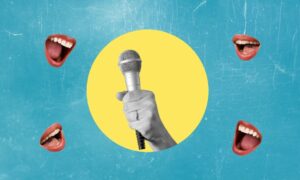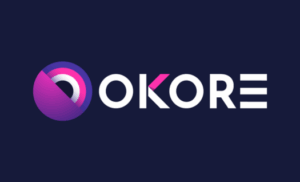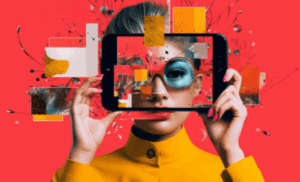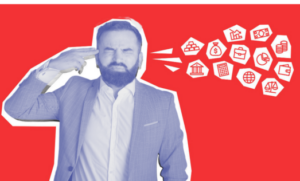A few days ago, I took part in a master’s degree in strategic communication, giving a session on influence in the digital environment. The aim was to develop this concept, the derivative of the influencer. and its mainstreaming or democratisation over the last few years. We can all be influencers, indeed, and that influence has, increasingly, more tools and channels to be developed and exercised. One of them are podcasts. It is very common that the transmission of persuasive messages to communities with interests close to our own and, therefore, open to being influenced, is developed not by graphic means (photos or videos on Instagram, TikTok or YouTube), but by voice in the form of speech. Along with newsletters, podcasts are becoming an effective way of delivering messages to change minds, reinforce them or call for action.
Why are podcasts becoming an increasingly basic tool in the development of digital influence? We should first consider what we mean by influence and then by influencer.
What is influence?
Influence is a possibility, not a certainty. A possibility that people or entities are capable of altering or conditioning our behaviour, sometimes without us being aware of it and sometimes without us being aware of it (as in the case of persuasion), using digital channels to do so.
So far, so good.
What is a digital influencer
Today’s influencer usually responds to these characteristics:
- They use social media and digital platforms to generate content, disseminate it and communicate with their community.
- This community is engaged, i.e. it has a direct interest in knowing what the influencer has to say and following up on it.
- They are consistent in their publications. Pace, frequency and lack of breaks are key to keeping the community active.
- Influencers have personality: they are authentic and their character is recognisable by their gestures and features.
- They are an aspirational reference for many of their followers: they want to be like them. So when an influencer acts in a way that is the opposite of how we expect them to act, they can be subject to the culture of cancellation. Using the “halo effect” explained to us by behavioural science, we infer that if someone is a good streamer, they are probably also a good person… until one day they share their political opinion and it leaves us feeling shocked.
- They generate quality content, meaning not content that is absolutely good (who can quantify why a certain style is good in itself when we are talking about emotional issues), but content that is unique, viral and capable of motivating the generation of new content based on it.
- And finally, it seems difficult, with some exceptions (such as intra-influencers), to imagine the influencer as someone who does not monetise their activity.
Influencers and podcasting
Why is influence increasingly channelled through the podcast format? There are several reasons for this, starting from the above. The podcast must be consistent in its generation in order to maintain a loyal and close community. In addition, it allows the authenticity of the podcaster, his personal style, to be well conveyed. Of course, “La Pija y la Quinqui” cannot boast of being professional radio broadcasters, but neither can it be denied that they hide their personality in their episodes. On the contrary: they are what give them their charm. This charm is also related to the generation of close communities by affinity. Rarely does anyone listen to a podcast that makes them feel uncomfortable or where the views expressed by the hosts are radically opposed to our own. Somehow, when they are not informative, podcasts tend to be echo chambers.
And here comes something that I think is key and that makes a radical difference with journalistic radio formats. Podcasts are tools for emphasising empathy. When you have a conversation with someone on a podcast, it always happens with the utmost respect and the absolute absence of criticism. “Come here, tell me your view of things and I won’t question it,” some of these content channels seem to exude. This, which is the opposite of the journalistic question, nevertheless generates a strange phenomenon of “safe place“. The guest feels comfortable because they will not be questioned, and the listener feels comfortable because the empathy generated by these environments will not lead to embarrassment.
“Podcasts are tools for emphasising empathy”.
The downside of the model is that if we believe that the podcast should replace the role of the interviewing journalist, we will be giving up something necessary. Functions are not the same. It is true that, for its protagonists, the benefit is mutual: I give you my presence (the president of the government attending a podcast is a way of blessing the relevance of the latter with the prestige of the former) and you return the favour with a quiet chat.
What a coincidence, didn’t Ibai Llanos call one of his formats “Chatting quietly“? So that’s it.
By the way, here at Incognito we have activated a podcast and a vidcast, “La Cueva de MOE” (MOE’s Cave). You can listen to us on Spotify and Apple Podcast. Will it also be a friendly space to praise others? Well, neither one thing nor the other. “La Cueva de MOE” is a format to talk about communication and marketing, to divulge ideas, to share thoughts and, also, to criticise or judge situations and positions. It’s not all about living in the Calle de la Piruleta (lollipop street) 😉.












